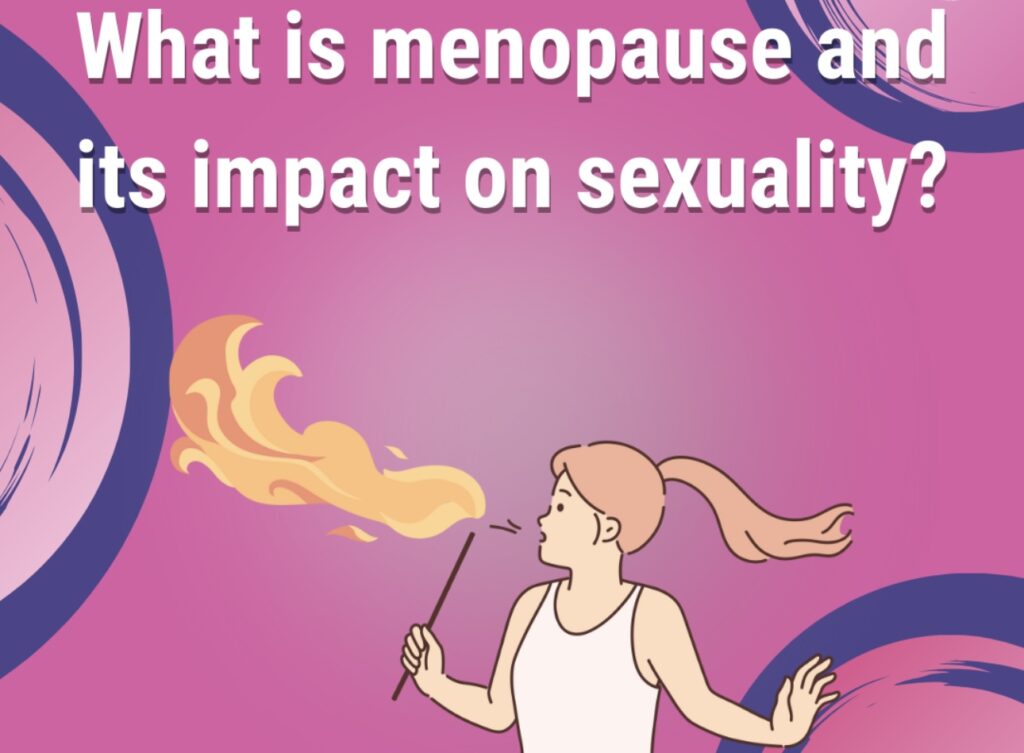
Menopause brings significant hormonal changes that can affect various aspects of health, including sexual health. It’s important to understand these changes and explore solutions to maintain a satisfying and healthy sex life during and after this transition.
How Menopause Affects Sexual Health
1. Vaginal Dryness and Atrophy:
Decreased estrogen levels lead to thinning and drying of vaginal tissues, resulting in discomfort and pain during intercourse. This condition, known as vaginal atrophy, affects up to 50% of postmenopausal women.
2. Decreased Libido:
Hormonal changes can lead to a reduced sex drive. Factors contributing to this include lower estrogen and testosterone levels, as well as emotional changes like mood swings and depression.
3. Painful Intercourse (Dyspareunia):
Vaginal dryness and atrophy can cause pain during sex, making it less enjoyable and sometimes leading to avoidance of sexual activity.
4. Urinary Issues:
Menopause can increase the risk of urinary tract infections (UTIs) and cause urinary incontinence, both of which can negatively impact sexual health.
5. Emotional and Psychological Effects:
Menopause can bring about mood swings, anxiety, and depression, which can affect a woman’s sexual desire and overall sexual well-being.
Statistics on Menopause and Sexual Health
Prevalence of Sexual Dysfunction:
About 42% of postmenopausal women report experiencing sexual dysfunction, including issues like decreased libido, vaginal dryness, and pain during intercourse.
Up to 50% of women feel that menopausal symptoms negatively affect their intimate relationships and overall quality of life.
1. Vaginal Estrogen Therapy:
Localized estrogen treatments, such as creams, rings, or tablets, can effectively address vaginal dryness and atrophy without significant systemic effects.
2. Lubricants and Moisturizers:
Over-the-counter water-based or silicone-based lubricants can help reduce discomfort during intercourse. Regular use of vaginal moisturizers can help maintain vaginal health.
3. Hormone Replacement Therapy (HRT):
HRT can help alleviate various menopausal symptoms, including those affecting sexual health. It’s important to discuss the risks and benefits with a healthcare provider.
4. Pelvic Floor Exercises:
Strengthening the pelvic floor muscles through exercises like Kegels can improve urinary incontinence and enhance sexual function.
5. Healthy Lifestyle Choices:
Regular exercise, a balanced diet, adequate sleep, and stress management can improve overall well-being and mitigate some menopausal symptoms.
6. Open Communication:
Discussing changes and concerns with a partner can help maintain intimacy and find mutually satisfying solutions. Seeking therapy or counseling can also be beneficial.
7. Regular Medical Check-ups:
Regular visits to a healthcare provider can help monitor menopausal symptoms and manage any emerging health issues.
Menopause brings changes that can affect sexual health, but understanding these changes and exploring available treatments can help manage symptoms and maintain a healthy and fulfilling sex life. If you’re experiencing menopausal symptoms affecting your sexual health, consult with a healthcare provider to discuss personalized management strategies.
By staying informed and proactive, women can navigate this life stage with confidence and continue to enjoy a satisfying sexual and emotional relationship.ReplyForward